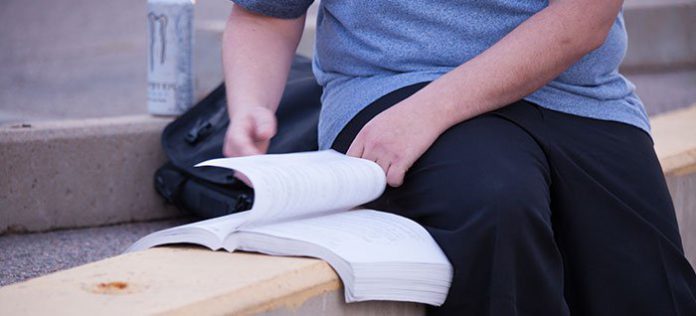
After holding an in-person bar exam in July that caused uproar from students, law school faculty and attorneys, the February 2021 bar exam will be remotely administered and include some added security tools to safeguard the upcoming exam.
“The use of AI is obviously new to us in this exam process,” Colorado Supreme Court Attorney Regulation Counsel Jessica Yates said, “but AI is used in all kinds of different contexts in similar ways in everyday life.”
In November, the Colorado Supreme Court made the determination to use an online exam amid rising COVID cases and hospitalizations, Yates said. Its decision came months after examinees raised alarms about exposure to an asymptomatic carrier of COVID-19 who sat for the in-person bar, a concern that was identified by students and others in the months coming up to the exam dates.
Multiple other states offered remotely administered exams in October. Following those exams, the National Conference of Bar Examiners, which oversees the bar exam, announced that it plans to equate the MBE and provide UBE and MBE transfer services for the both the remote and in-person administrations of the February 2021 bar.
All Colorado applicants will take the test remotely on Feb. 23 and 24. The February bar consists of six multistate essay questions and 200 multistate bar examination questions. The exam consists of eight different sessions administered over two days, each lasting 90 minutes, with 30-minute breaks and a long lunch in between.
Last year, as reported by Bloomberg Law, online exams raised concerns about technology limitations and privacy and the possibility of cheating as nearly 30,000 people took the online October bar, when some examinees reported exams crashed mid-test.
Colorado’s upcoming exam will be administered through ExamSoft, an educational assessment technology company, and its platform Examplify, which includes tools to provide ID verification through facial recognition, audio and visual recording, human proctor reviews and mock exams to prepare testers for the process, according to the Office of Attorney Regulation Counsel’s FAQs on the upcoming exam.
Yates said ExamSoft is the only vendor for the upcoming remote bar and was the vendor for the remote exams administered last year. Colorado has used the company previously, but not in the last couple of years.
The software is intended to prevent cheating by recording test-takers during the exam. The recordings are uploaded along with the answers, and an AI program will analyze the recordings and flag “unusual behaviors” such as leaving the camera’s view; making “unnatural” hand gestures, eye gaze or movements; “suspicious objects”; and having multiple people in the testing room. A similar level of diligence to the remote exam will be present as if it were in person, Yates said.
Anything marked by the AI software will be reviewed by a human being. No one would be disqualified from the exam just based on what a computer says, Yates said. After the review, and if necessary, there could be an investigation into behaviors with the applicant.
“It is important to note that the human proctors reviewing the recordings and flags will not, at any time, have access to any Applicant’s personal identifying information,” the FAQs state. “All exam materials, including exam footage, are connected only to an Applicant number.”
The increased security for the test could translate into higher risk for the test-takers. The biometric data collection is governed by ExamSoft’s privacy policy. The collection, storing and use of the data include information provided registering an account, student ID number, makes and models of computers, security and software performance info, phone number, email address, answers and more, according to the company’s website.
Examinees must consent to the collection and use of biometric data. This includes examples of retina or iris cans, voiceprint and scan of face geometry. During the first mock exam, the software will take a “baseline” photo of the applicant that will be used to verify their identity at the state of each actual exam session, according to the FAQs.
Each session of the actual exam will take another photo of the applicant, then compare it to the photo of the mock exam, and then authenticates the identity of the examinee, according to the FAQs. Applicants need to use this option and check the photo quality before going to the next session.
—Avery Martinez

